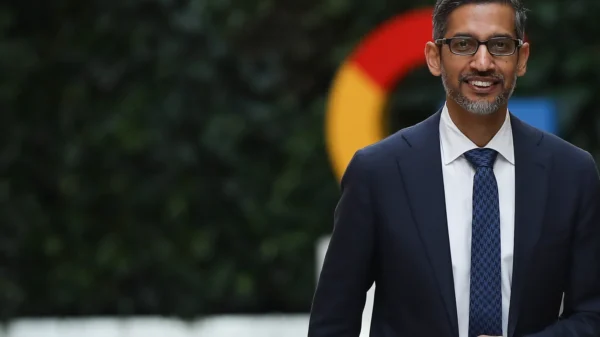Introduction to the Age-Old Question
The notion of whether money can buy happiness has intrigued humanity for centuries, serving as a focal point of significant discourse across various fields. This multifaceted question intersects disciplines such as philosophy, economics, and psychology, each bringing nuanced perspectives to the debate. Philosophers have long pondered the ethical dimensions of wealth and its impact on human fulfillment. Economists study the correlation between income levels and overall life satisfaction, while psychologists delve into the emotional and cognitive aspects of financial security.
Cultural expressions via music and art have also contributed to this ongoing conversation. Notable figures in contemporary music, such as The Notorious B.I.G. and Kanye West, have highlighted the paradoxes of wealth through their lyrics. Biggie’s famous line “Mo’ Money, Mo’ Problems” encapsulates the notion that increased wealth can bring about a new set of challenges, complicating the simplistic narrative that more money equates to increased happiness.
Moreover, the complexity of the relationship between money and happiness can be partially attributed to diverse cultural norms and personal values. In some societies, material wealth is a clear indicator of success and a path to happiness, whereas in others, community and spiritual well-being are deemed more significant. Furthermore, individual differences in aspirations, needs, and life circumstances also play a pivotal role, indicating that the connection between money and happiness is far from straightforward.
As we delve deeper into this blog post, we will explore various dimensions of this age-old question. From psychological well-being and lifestyle enhancements to the potential traps and pitfalls of wealth, our aim is to provide a comprehensive understanding of how money can, and sometimes cannot, contribute to a happier life.
Buy Experiences, Not Goods
Research consistently indicates that spending money on experiences rather than material goods leads to greater and more lasting happiness. One aspect to consider is how experiences can generate enduring memories and stronger emotional connections compared to possessions. According to a study from the Journal of Consumer Psychology, people find experiences more satisfying because they contribute more significantly to their sense of identity and personal growth.
Experts also note that experiences often entail social interactions, which enhance happiness through shared moments and bonding. For instance, a trip to an exotic destination, attending a live concert, or having a memorable dining experience with friends can create enriching social connections. These experiences often turn into cherished memories that are recounted and relived through storytelling, sustaining happiness over time.
The psychological mechanisms behind why experiences yield higher happiness dividends are multifaceted. Experiences are inherently less likely to be subject to comparison than material goods. When you purchase a new gadget, its novelty may quickly fade as you compare it to newer models that others possess. On the other hand, experiences are unique; the joy derived from a once-in-a-lifetime concert or a fascinating travel adventure cannot be easily diminished by comparison.
Moreover, anticipation of an upcoming experience can also contribute significantly to one’s happiness. A study published in the journal Psychological Science found that people derive substantial joy not just from the experience itself but also from the anticipation leading up to it. This is in sharp contrast to material possessions, where excitement often peaks at the moment of purchase and declines thereafter.
It is evident that money spent on experiences can produce a richer tapestry of memories and emotional highs. Travel, concerts, dining, and similar activities offer greater and more enduring happiness than material goods. When considering the best ways to convert your financial resources into lasting joy, prioritizing experiences over possessions is a highly recommended approach.
Make It a Treat
One of the most compelling insights into the relationship between money and happiness is understanding how scarcity can enhance our appreciation for things. When something is constantly available, its perceived value tends to diminish over time. By making an effort to treat oneself occasionally, rather than indulging every day, one can savor these moments more and derive greater happiness.
Economists and psychologists have long established that the principle of scarcity plays a significant role in felt appreciation. When we experience something less frequently, we tend to value it more. This concept is often referred to as the “scarcity effect.” In practical terms, making your favorite indulgence or luxury an occasional treat can significantly boost your happiness. For example, instead of having your favored gourmet coffee every day, limiting it to weekends or special occasions can make the treat feel more special.
Balancing the act of treating yourself and maintaining self-control is crucial. One effective method is setting specific times or occasions for indulgence. For instance, allow yourself a special purchase or experience as a reward for achieving a personal or professional milestone. This not only heightens the enjoyment of the treat but also ties your indulgence to positive accomplishments, fostering a healthy cycle of reward and motivation.
Expert advice often emphasizes the importance of mindful consumption. Taking the time to fully enjoy a treat, focusing on the present moment, and appreciating all the sensory experiences it offers can increase your overall satisfaction. For example, turning a simple chocolate bar into a mindful eating experience can make you feel more satisfied than mindlessly consuming multiple bars.
Real-life examples abound. Consider how vacationing less frequently but opting for a more luxurious experience can often be more fulfilling than taking frequent, mundane trips. By strategically choosing when and how to indulge, you align your spending with experiences that bring you the most joy, thereby turning bucks into bliss wisely.
Buy Time
In the quest to enhance our happiness, one of the most effective strategies is to leverage financial resources to buy time. Time, unlike money, is a finite commodity. Once it’s gone, it cannot be regained. Therefore, making prudent financial investments that free up our schedules can significantly improve overall well-being and happiness.
Outsourcing mundane tasks such as cleaning, grocery shopping, and running errands can yield substantial benefits. By delegating these time-consuming activities to professionals or specialized services, individuals can reclaim precious hours to engage in more pleasurable and meaningful pursuits. This shift not only enriches our daily lives but can also decrease stress levels. Studies have shown that people who spend money on time-saving services report higher life satisfaction compared to those spending on material goods.
For example, consider a busy professional who decides to hire a cleaning service. The hours saved from household chores can be redirected towards hobbies, family time, or rest, which cumulatively enhances joy and relaxation. Such decisions contribute to a more balanced lifestyle where personal time is valued and preserved.
Experts in psychology and behavioral economics often underline the positive outcomes of optimizing time through financial means. According to Dr. Elizabeth Dunn, a prominent researcher in the field, buying back time can lead to more productive use of one’s schedule. This can manifest in improved mental health, stronger relationships, and greater opportunities for self-improvement.
Case studies reinforce these findings. One detailed example involves a single parent utilizing a grocery delivery service. The time saved directly impacts their quality of life by reducing stress and allowing for engagement in fulfilling activities like exercise, volunteering, or simple relaxation. The resultant improvement in overall well-being underscores the value of investing in services that buy back time.
In conclusion, using money to buy time isn’t just a luxury but a practical approach to increasing happiness. By outsourcing routine tasks, individuals can enjoy the benefits of more leisure time, reduced stress, and a marked improvement in overall well-being. With careful financial planning, money can indeed be transformed into blissful, quality time.
Pay Now, Consume Later
The anticipation of an upcoming experience can be just as pleasurable as the actual experience itself. This psychological phenomenon suggests that paying for experiences upfront and enjoying them later can significantly enhance one’s happiness. The concept of delayed gratification plays a pivotal role in this scenario, as it involves resisting immediate temptations in favor of long-term rewards. When applied to financial decisions, this principle advocates for paying in advance for future experiences, thereby allowing the anticipation to build and amplify the overall joy.
From a cognitive perspective, the brain’s reward system becomes more active when looking forward to a pleasurable event, releasing dopamine, which is often associated with feelings of happiness. For instance, planning a holiday several months in advance and making all the payments upfront can make the entire wait period exciting and filled with positive emotions. This technique is not only applicable to grand vacations but also to more modest experiences such as attending a concert or dining at a unique restaurant.
To implement this strategy in everyday life, one can start by identifying experiences that they look forward to. These could range from a special outing, participation in a workshop, or even booking a wellness retreat. By paying for these experiences in advance, the financial stress of the cost is managed earlier on, freeing the mind to focus on the excitement and happiness that anticipation brings.
Consider setting aside a specific budget for prepaid experiences each year. This allows for a variety of activities to be planned, paid for, and anticipated. Another practical tip is to incorporate scheduled reminders of the upcoming event. This keeps the excitement fresh, ensuring the delay between payment and consumption remains an enjoyable period of eagerness and happiness.
In summary, the strategy of “pay now, consume later” leverages psychological and financial planning advantages to maximize happiness. By consciously applying delayed gratification to the purchase and anticipation of experiences, one can turn financial expenditures into prolonged sources of joy and satisfaction.
Give to Others
Research consistently demonstrates that spending money on others often leads to greater happiness than spending it solely on oneself. This phenomenon is supported by various psychological and economic studies highlighting the science behind giving and its impact on overall well-being.
One notable study by Harvard Business School found that individuals who engage in prosocial spending – that is, spending money to benefit others – report higher levels of happiness compared to those who spend their money on personal purchases. The act of giving triggers the brain’s reward system, releasing endorphins and creating a “helper’s high,” which significantly boosts one’s mood and life satisfaction.
There are numerous ways to incorporate giving into your financial habits. Charitable donations are a direct method, allowing one to contribute to causes that resonate on a personal level. Whether it’s supporting local community initiatives, global charities, or specific projects like education or healthcare, these contributions can foster a profound sense of purpose and connection to the larger world.
Another effective approach is buying gifts for friends and family. Acts of generosity, such as surprising a loved one with a thoughtful present or treating them to a special meal, can enhance relationship bonds and foster reciprocal positive emotions. The joy of seeing another’s happiness can amplify your own sense of contentment.
Spending money on shared experiences also stands as a powerful form of giving. Experiences such as traveling together, attending events, or participating in group activities create lasting memories and strengthen social connections. Shared experiences foster a deeper sense of belonging and reduce feelings of isolation, essential components of long-term happiness.
Expert insights from psychologists like Dr. Elizabeth Dunn and Michael Norton, who have extensively studied the link between spending habits and happiness, underscore the importance of prosocial spending. They suggest that the emotional returns on investments in others can far exceed those of material acquisitions.
Personal stories also resonate with these findings. Many individuals recount how shifting their spending towards others, even in modest ways, brought a substantial sense of fulfillment and joy. These real-life accounts illuminate how prioritizing the happiness of others can, paradoxically, lead to a richer, more contented life for oneself.
Conclusion and Final Thoughts
In analyzing the intricate relationship between money and happiness, it’s evident that while financial resources alone may not guarantee a contented life, the manner in which we utilize our money can profoundly impact our well-being. This blog explored five key strategies to transform monetary assets into sources of happiness: investing in experiences, cultivating relationships, spending on others, ensuring financial security, and prioritizing health and well-being.
Investing in experiences, rather than material goods, fosters lasting memories and enriches our lives. Whether traveling to new destinations or engaging in enjoyable hobbies, experiences offer emotional benefits that outlast the temporary joy of physical items. Building and nurturing relationships through thoughtful spending helps create a strong support network, contributing to emotional stability and a sense of belonging.
Spending on others, through acts of generosity and philanthropy, can also enhance happiness by fostering a sense of purpose and connection. It’s through giving that we often find greater satisfaction than through receiving. Furthermore, ensuring financial security by managing debts and planning for the future alleviates stress, providing peace of mind and stability.
Prioritizing health and well-being through smart investment in one’s physical and mental health ultimately serves as a foundation for happiness. A healthy body and mind enable us to enjoy the fruits of our financial endeavors fully.
As readers reflect on their spending habits, it is vital to make mindful changes that align with these principles. Opt for choices that offer long-term emotional fulfillment rather than transient pleasure. By doing so, you can harness the potential of your financial resources to enhance your overall happiness and well-being. Achieving a balanced approach to money management ensures that we not only meet our material needs but also enrich our lives in meaningful ways.



































